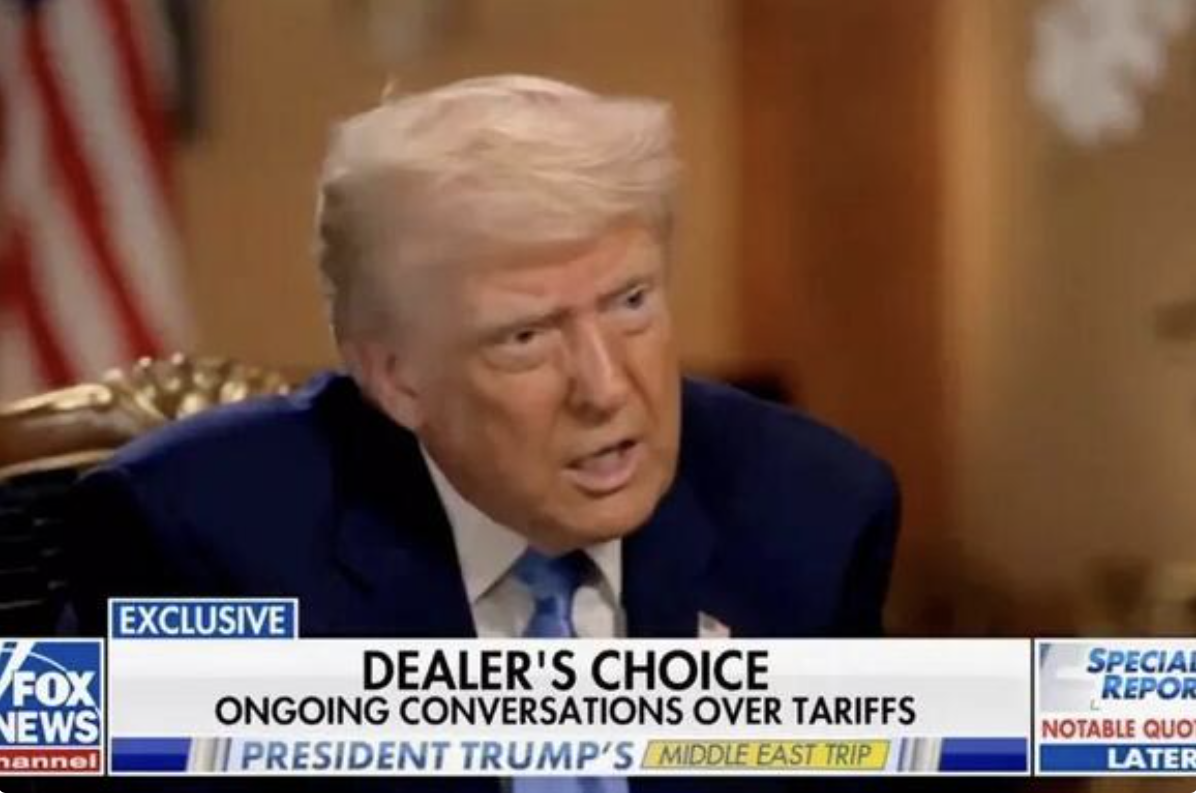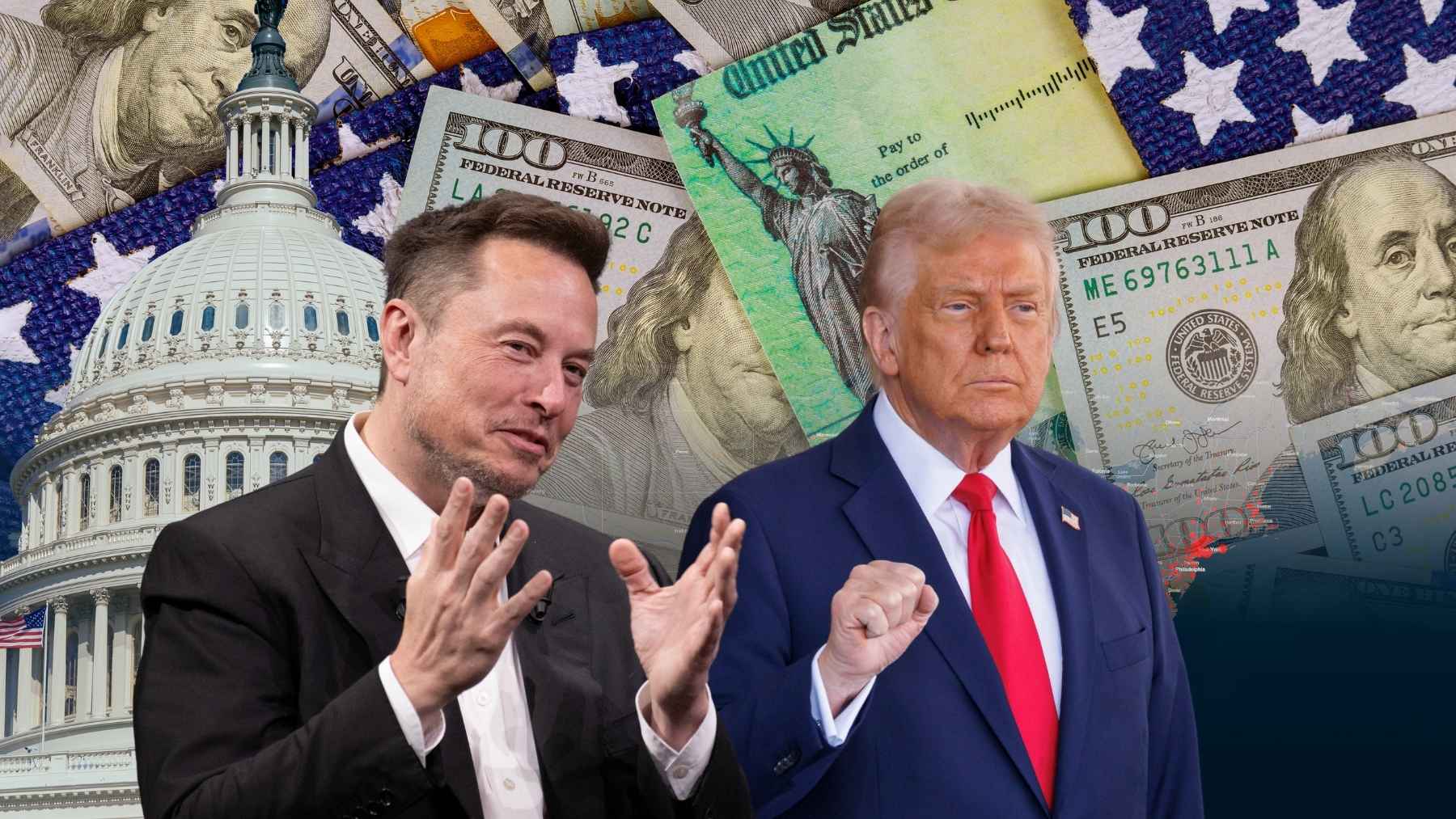President Donald Trump is facing a wave of criticism after comments made during a Fox News interview with Bret Baier on Friday, where he suggested that he prioritized a lucrative Middle East tour over attending Russia-Ukraine peace negotiations in Istanbul — a decision he openly tied to financial gains.
Trump Skips Ukraine Talks, Chooses Middle East Tour
During the interview, Baier asked Trump why he opted not to attend the peace discussions in Turkey, which were attended by Ukrainian President Volodymyr Zelensky but not Russian President Vladimir Putin. Trump was not formally scheduled to participate, but he had previously indicated that he could play a key role in ending the conflict.
“I might have [gone], but I will tell you what. I would not have wanted to disappoint UAE,” Trump said, sidestepping the core issue while referring to his diplomatic visit to the United Arab Emirates, one of several stops during his Middle East tour.
In what many are calling a tone-deaf and alarming admission, Trump added that his trip to the region made financial sense.
“I Made 12 Times the Money” – Trump Boasts of Middle East Profits
Trump then pivoted to boasting about the financial success of his Middle East tour, claiming:
“Think of it — this trip, I made 12 times the money we’re talking about. I made that money in a few days. I’ve always been good with money. I make money. In four days, I made 12 times what we spent in Ukraine.”
When Baier reminded Trump that the war in Ukraine isn’t “about money” but about stopping Putin, Trump interrupted, railing against what he called the “money being pissed away” by prior administrations.
According to Trump’s math, he claimed to have made 12 times the $174.2 billion that the U.S. has spent on aid for Ukraine — suggesting he generated nearly $2.94 trillion in value or deals through his Middle East engagements. However, no supporting evidence was offered to back up this extraordinary claim, which many critics quickly labeled misleading or delusional.
Critics Alarmed by “Profits Over Peace” Mindset
Political analysts, former diplomats, and international policy experts have expressed concern that Trump’s comments reveal a prioritization of personal or national profit over diplomacy and peacekeeping, particularly amid an ongoing war that has cost thousands of lives.
In the backdrop of failed ceasefire negotiations in Istanbul, Trump’s absence was felt. European leaders condemned Moscow’s lack of commitment to a peace agreement, with reports emerging that Russia threatened an “eternal war” if its terms weren’t met.
Ukrainian President Zelensky made a strong statement on X (formerly Twitter):
“Our position — if the Russians reject a full and unconditional ceasefire and an end to killings, tough sanctions must follow. Pressure on Russia must be maintained until Russia is ready to end the war.”
Trump: “No Deal Without Me”
Despite his absence, Trump insisted he still holds the key to peace, stating:
“I always felt there can’t be a meeting without me because I don’t think a deal is going to get through. There is a lot of hatred on both sides.”
The president also remarked that “nothing is gonna happen until Putin and I get together,” reinforcing his long-standing claim that he alone can broker a peace agreement.
Mounting Backlash Over “Incoherent” Rhetoric
In the same interview, Trump launched into what many viewers and commentators described as a “confusing” and “incoherent” rant, unveiling an unclear “golden dome plan” for the U.S., which added to concerns about his mental clarity.
The interview has since gone viral, with critics pointing to the remarks as evidence of Trump’s deteriorating grasp of foreign policy and prioritization of profits over people.
Conclusion: Political Fallout and Public Reaction
Trump’s revelations — whether exaggerated or not — are drawing significant backlash at a time when the world continues to reel from the ongoing conflict in Ukraine. While millions suffer and governments work to navigate a fragile geopolitical landscape, Trump’s focus on financial gains over peace efforts has sparked outrage.
His absence from diplomatic negotiations, combined with his self-congratulatory tone about monetary success, has fueled criticism that the president remains more focused on optics and wealth than meaningful contributions to global stability.
With the 2024 U.S. election cycle heating up, Trump’s comments may shape public perception and reignite debates about his foreign policy decisions, alliances, and long-term vision for America on the world stage.













Leave a Reply